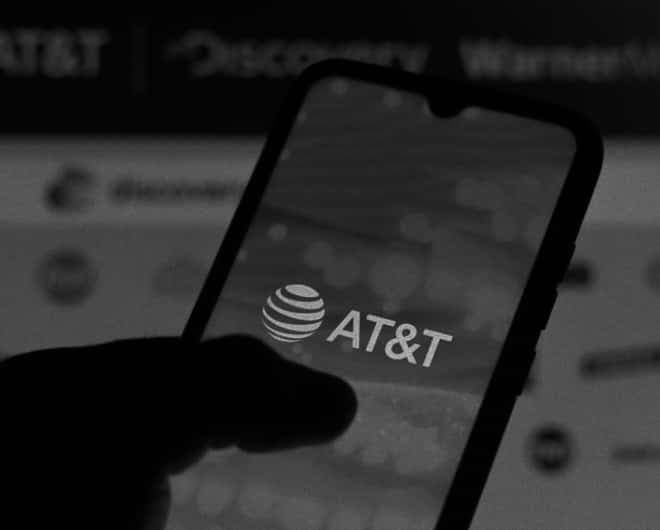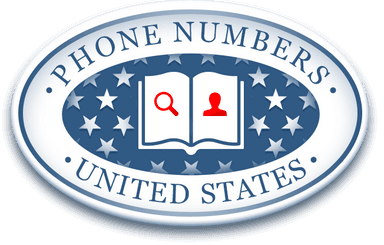AT&T Phone Scams

AT&T is a leading long-distance telephone service provider in the United States, servicing over 50 million phone lines from coast to coast. The very name "AT&T" is instantly recognizable in households across America. The company’s long history means that people trust them.
However, cybercriminals are more than willing and able to exploit that trust using the same technology that the company helped develop. These criminals typically impersonate AT&T employees, especially customer service, to defraud customers of money and sensitive information.
While the company takes several measures to reduce these scams, customers must also play their roles in protecting themselves. The majority of this role starts with performing a reverse phone search to look up unknown callers and reporting suspected scammers to the authorities.
What Are AT&T Phone Scams?
AT&T phone scams take on various forms but typically involve a person impersonating the company’s employee to steal money or sensitive information. This is typical of other cell providers’ scams, as well, such as Verizon phone scams. Technology has made phone scams simpler and bigger to carry out. Auto dialers let scammers make millions of callers at the same time at a low cost.
Likewise, spoofing software enables scammers to conceal or even change their caller ID to appear like the caller ID for a legitimate business or government agency. Both of these help scammers reach more targets at the same time and improve the likelihood that someone would respond.
Common Scams Reported By AT&T Customers
Scams take on different forms, but here are the common scams reported by customers:
- Customer service scam: This scam happens when a person impersonates AT&T employees and offers to help the individual resolve a problem. Instead, they deceive the customer into revealing sensitive information.
- Phishing: someone sends you a message that appears to be from AT&T but is really from a scammer. The message asks you to provide your account details or other sensitive details.
- Threats of a lawsuit: Scammers threaten to take legal action against a customer for some reason that was made up, hoping to scare the daylight out of them. The aim is the customer would be open to paying a small sum to prevent the suit.
- Prize claim: Here, a scammer calls and informs an unsuspecting customer that they have been selected for a prize claim. Often, it’s along the lines of “congratulations, you are our one-millionth customer, and you have won a cash prize.” The aim is to get the person excited enough to provide their identity and bank account information.
What Do Scammers Want from AT&T Customers?
From impersonating customer service to sending phishing texts and fictitious prize claims, a scammer’s goal remains the same: to steal money or information they can monetize. In addition to the information available in your phone number, the following information is valuable to scammers:
- Full name: An individual's name is the primary way to identify the person. However, this information is not helpful unless they get vital information like birth date and address.
- Contact Address: An address, like a name, is often publicly available information. Scammers need this information to impersonate a customer.
- Social security number: Scammers use social security numbers because it’s easier to steal a person’s identity and access their financial accounts and apply for credit in the person’s name.
- Card information: Card information is not as valuable as social security numbers but remains valuable nonetheless. Armed with credit card details, a scammer can go on a spending spree up to the victim’s credit limit.
- Bank details: Armed with this information and the individual’s name, a scammer can break into a bank account and steal all the money in there.
- Official documents: Copies of passports and driver's licenses are highly sought by scammers because it makes identity theft easier.
How to Report a Phone Scam to AT&T
When you report a phone scam, it helps ensure that AT&T is aware of the fraud and takes steps to help protect its customers from that type of fraud. AT&T has several ways customers may report phone scams, from calling an emergency line to sending an email.
- Phone call: Users can dial the AT&T customer service shortcode, 611, and ask to speak to their fraud department if they receive suspicious phone calls or have been scammed.
- Email contact: Customers may email abuse@att.net, attaching a suspicious message for review.
- Text: AT&T customers can also forward spam or suspicious messages to 7726 from their AT&T phones free of charge. This message does not count towards text limits.
- Robo texts and calls can also be reported to AT&T through the company's online forum.
- AT&T customers also converge at the company's online community forum to report fraud cases and share experiences.
How to Report AT&T Phone Scams to Law Enforcement
Generally, you should contact the law enforcement in your state or county first. This is usually the Sheriff’s Office or the Police Department in the county you live in. Then, you can report the phone scam to the Federal Trade Commission (FTC), the Federal Communication Commission (FCC), and the Federal Bureau of Investigation (FBI).
Individuals who have been defrauded can use the FTC's report fraud page to file a complaint with the agency. If you have a victim of identity theft, make your report on the identity theft reporting platform. Likewise, the FBI crime complaint center is where you can report anything concerning online fraud, phone scams, and identity theft.
You should report the phone number that appears on the caller ID (report the number even if you think it is spoofed). Individuals should also report any number provided by fraudsters, whether for a callback or as a substitute.
How to Protect against AT&T Phone Scams
Scammers have been out for a long time, but they've never been more active than in recent years. Ever since the arrival of smartphones, phone scamming has skyrocketed, and it's no wonder why. Although the proliferation of phishing websites and new schemes is concerning, there are steps you can take to protect yourself against fraud.
The best way to protect yourself against AT&T phone scams is to keep your personal information, bank account details, and other sensitive details private. Here are other tips:
- Terminate calls if you suspect the caller is a scammer. After this, report the call and put your phone number on the Do Not Call Registry.
- Do not click links in a suspicious email, as scammers can hack your computer this way. Also, never use the link in an email to log in to any account. Instead, exit the email and log in to your account from your browser.
- Use your phone’s call blocking feature so the scammer cannot call you again.
- Understand that caller IDs can be spoofed, and never share your personal details over the phone.
- Do a reverse phone number lookup to find out the name, address, and public records associated with an unknown caller.
What to Do If You Fall for AT&T Phone Scam
If you notice strange charges from AT&T on your financial statement, contact the company’s customer service line to confirm the charges. An agent can also advise you on the next steps if you have indeed been scammed. Generally, you will have to do the following:
- Contact your bank immediately to block your card, initiate a chargeback, and place a temporary hold on charges to your account.
- Call your local law enforcement agency.
- Submit an online complaint to the FTC.
- Contact the FBI Internet Crime Complaint Center.
- Install the AT&T Call Protect app to block calls from known scam numbers.
When you file a complaint, ensure to provide enough information and describe the situation as clearly as you can. The more details you provide will help track down the scammer and put scammers away.


